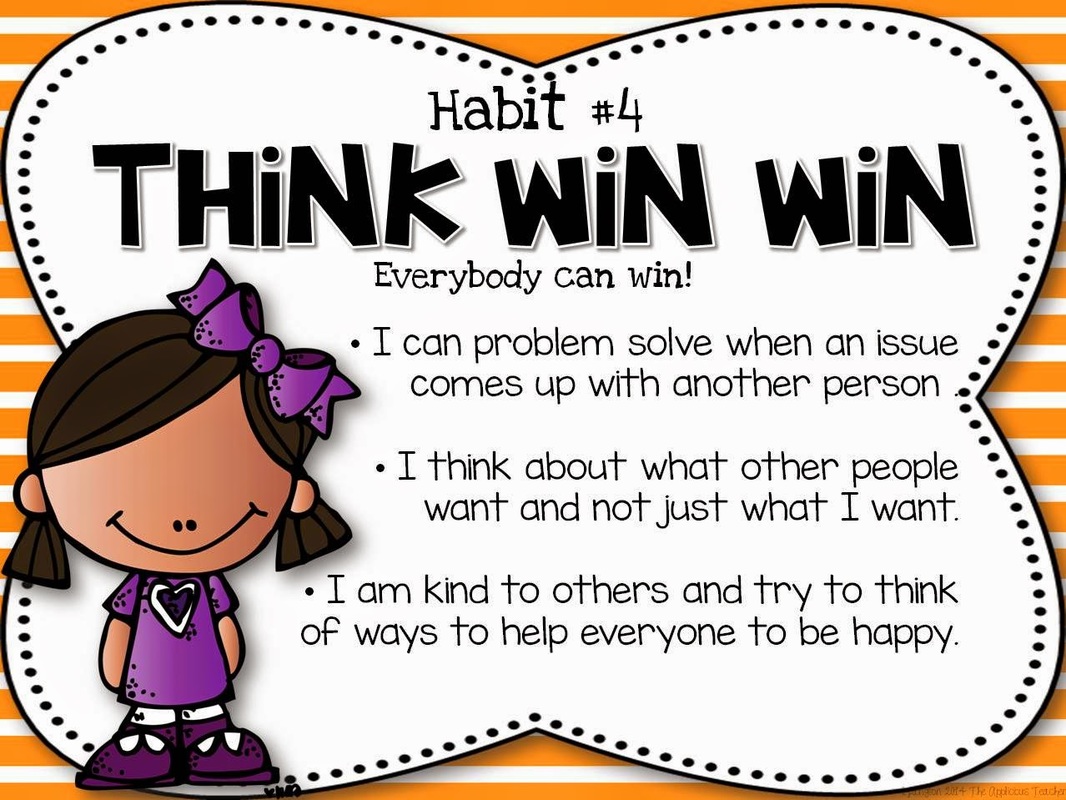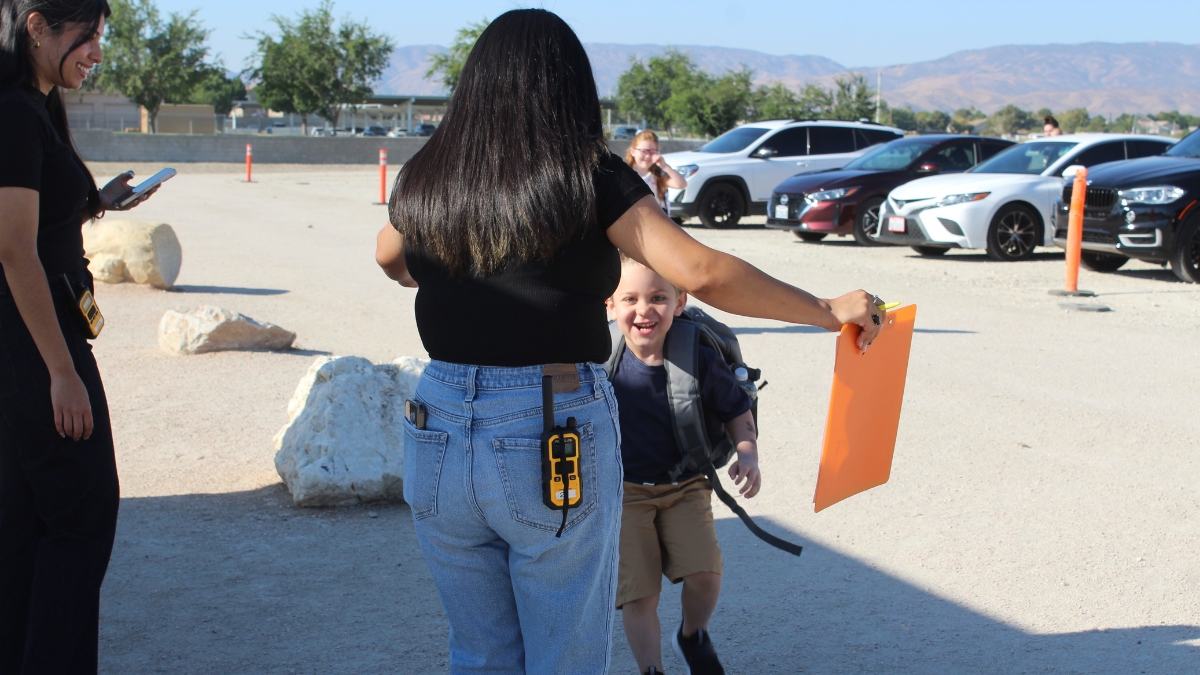Parent Resources

This week the 7 Habits focus is Habit 4: Think Win Win!
Think Win-Win is the belief that everyone can win. It’s not me or you — it is both of us. It is a belief that there are enough good things for everyone; it is an abundant way of thinking. Think Win-Win is being happy for others when good things happen to them. As a parent, not everything is negotiable, but if you go into discussions with your child with a win-win mindset, you’ll find a lot less resistance.
Younger Child Activities To Try At Home.
- Play a game with your children that has a definite winner. Explain how competition is okay when you play a game, but it is not okay in relationships. Discuss how tense it would be in your home if every situation had to have a winner. A better way to think is win-win. This means we think of solutions that we can all feel good about when there is a problem. The more we Think Win-Win, the fewer problems there will be. You may want to display a chart listing the days of the week. When someone is “caught” thinking win-win, he or she gets to write his or her name on the chart for that day.
- Encourage win-win solutions to sibling disputes. Don’t always be the mediator; let them work out a solution and be sure to be lavish children with praise when they do.
- Read Chapter 4 of The 7 Habits of Happy Kids book with your child and then complete the Parent’s Corner.
Teen Activities To Try at Home
- Say you are sorry when you yell, overreact, or accidentally blame one of your children for something he or she didn’t do. Modeling this behavior will set expectations for how your child should behave.
- Set clear expectations with your children about chores, curfew, grades, car privileges, etc. It’s hard for you both to win if you are playing by different rules.
Works for All Ages.
- Think of an ongoing conflict you tend to have with your child (homework, cleaning his or her room, feeding the dog, putting gas in the car) and then discuss a win-win solution to the conflict. Write down the solution and then remind each other of it the next time the situation arises.
- Remember not to compare your children in front of each other. Try not to say to Marcelo that “Juan always remembers to clear the table.” That’s win-lose thinking. Instead, just concentrate on praising Juan for a job well done Marcelo will get the message.
- Think about your relationship with your child. Is it generally win-win? If not, how is that affecting your family life? What should YOU
Learn how Leader in Me (7 Habits) can help parents and guardians establish a powerful framework to nurture and develop life-ready leadership skills at home. The excerpt above is from The Leader in Me Parent’s Guide. Click here for access to the entire resource.
RECENT POSTS

10 Reasons Why Students Thrive at iLEAD Antelope Valley Studio
iLEAD Antelope Valley Studio is a tuition-free public school serving TK-8th grade students in the Antelope Valley. We offer a unique learning environment where every child receives personalized attention, dedicated… Read More

El Dorado SELPA Webinar: “Autism: Understanding Executive Functioning for Parents”
Does your child need help getting started on homework, need help with remembering to do what you have asked, or need help staying organized and prioritizing? You’re invited to El… Read More

The Valet Process at iLEAD AV Studio
In an effort to keep iLEAD AV Studio learners, families, and staff safe, please remember to follow these valet procedures: Drop-off starts at 8:30 AM. Learners will not be admitted… Read More


